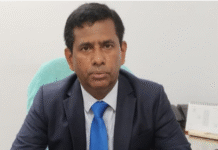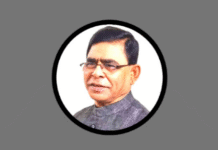The authorities must immediately take steps to ease the sufferings of Dhaka residents

In a detailed report printed in this daily on Wednesday, the level of mismanagement, inefficiency and corruption in Dhaka Wasa’s handling of the city’s water supply and sewerage was laid bare. It is shocking to see that after so many projects costing hundreds of crores over the years, many Dhaka dwellers are still living with dirty and foul-smelling water, facing acute shortages of drinking water, being deprived of access to sewerage networks and encountering waterlogging.
To add insult to injury, instead of accepting responsibility and attempting to alleviate the sufferings of city-dwellers, the managing director of Wasa, who has been at its helm for 11 years, has continued to pass the buck. Last year, he was widely criticised for famously claiming that water supplied by Wasa was 100 percent safe; he has also told reporters, on multiple occasions, that water-related issues can be attributed to technical problems only. All reports of corruption and mismanagement within Wasa have been routinely denied.
However, recent events clearly demonstrate that it is not as simple as that. Both city corporation mayors have heavily criticised Wasa and the Bangladesh Water Development Board for their failure to avoid waterlogging by keeping canals and drains clean. In a report submitted by the Anti-Corruption Commission to the LGRD ministry last year, various irregularities and opportunities for corruption within Wasa were identified, and a parliamentary standing committee blasted Wasa for its failures, and asked that immediate measures be taken to rid corruption and mismanagement.
Why, despite such clear directions from the authorities, is Wasa still operating as it sees fit? According to Wasa data, in the last seven years, approximately Tk 25,406 crore have been spent on projects relating to sewerage and sanitation, the city’s drainage system and the city’s water supply. Despite such huge bills, why are Dhaka’s residents still forced to wade through knee-deep water during monsoon season, and ration water in certain areas due to limited supply? Despite the price of water having increased 13 times in the last 11 years, why do we have to boil and treat poor-quality water at home, which, according to a TIB report, is leading to the burning of gas worth Tk 332 crore a year?
For too long, the authorities have looked the other way and allowed mismanagement and corruption to run rampant. The problems faced in terms of ensuring safe water supply and reducing waterlogging are manifold, and long-term planning and proper management are required to come up with solutions. But it will not be possible to implement any of these solutions if those responsible for a decade of failures and inefficiency are not held accountable.









